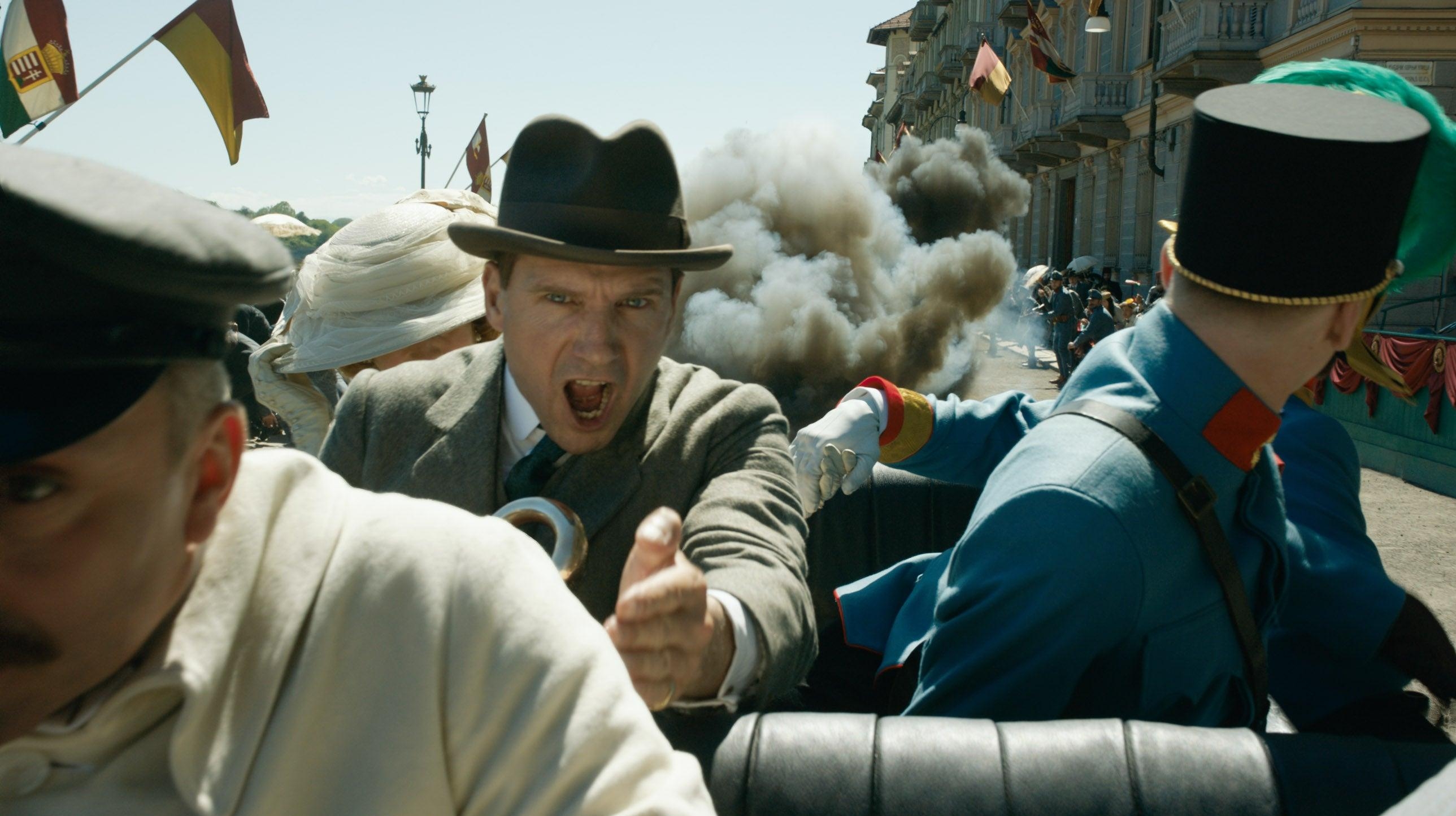Tedious prequel The King’s Man lacks the violent fun of its spy-movie predecessors
Ralph Fiennes is a reluctant badass in this uninspired, long-delayed entry in the Kingsman franchise

Say what you will about Kingsman: The Secret Service, but at least Matthew Vaughn’s hyperviolent, cartoonish spy pastiche had a sense of fun to go with its Mark Millar-inspired liberal-baiting, offering up all of the staple pleasures of a James Bond movie (gadgets, suits, production design excess, bizarre henchpeople, megalomaniacs with goofy master plans, etc.) without the dour pseudo-realism that came to define much of the Daniel Craig era. The sequel, Kingsman: The Golden Circle, delivered more of the same with diminishing returns: It was longer, louder, dumber, more ludicrous, and also something of a reactionary mess.
The Golden Circle’s structural and pacing issues are only exacerbated in The King’s Man, a tedious early-20th-century-set prequel that unsuccessfully attempts to resurrect the mishmashed imperialist, monarchist fantasies of an earlier era with a contemporary gloss. It is Kingsman without the namesake ingredient (the bespoke “independent” intelligence agency of the previous films is still just a London tailor shop); without the pop culture, sex jokes, or high-tech gizmos; without Colin Firth.
Instead, the job of classing up the material falls on Ralph Fiennes, a perverse choice for the role of the reluctant badass action-hero spy. He plays the Duke of Oxford, an English aristocrat and decorated colonial veteran who swears off war for good after his wife is killed by the bullet of a devious Boer. With the help of loyal servants Shola (Djimon Hounsou) and Polly (Gemma Arterton), he has raised a son, Conrad (Harris Dickinson), who is skilled in the fighting arts and eager to join the military, despite the disapproval of his dad. As it happens, the year is 1914, and a shadowy, Blofeldian villain has assembled an international conspiracy of malefactors—among them Grigori Rasputin, Mata Hari, Gavrilo Princip, and even Vladimir Lenin—to plunge Europe into a War To End All Wars and sow worldwide disorder.
Will Oxford, who has all the right skills for the cloak-and-dagger business, be able to stop them? No, not really: World War I still happens. Though ostensibly an action comedy, The King’s Man takes almost an hour to reach its first real action set piece, and little that occurs in that time can be called funny. (Unless, of course, one considers a Scotsman calling someone “fuckstick” to be the height of comedy.) Instead, the film’s long opening act plays like a misplaced jumble of intrigues mixed with stultifying father-son drama, Bad History, and monologues about the importance of noblesse oblige. Various historical figures make cameos; Oxford’s commitment to pacifism is tested; the plot lurches in different directions. The film’s one good history joke—the casting of Tom Hollander in the triple role of King George V, Tsar Nicholas II, and Kaiser Wilhelm II—turns out to be a squandered stunt; a scene in which a horny, bisexual Rasputin (Rhys Ifans) tongues the pantsless Oxford’s war wound plays like a bizarre tribute to David Cronenberg’s Crash.
One almost wishes that the entire film had the bad taste (no wordplay intended) of the Rasputin sequence, an overlong chunk of the film that climaxes with the unkempt Russian mystic fighting Oxford, Conrad, and Shola with the help of killer dance moves. (The Russians—they love ballet!) For the most part, Vaughn’s slick, flashy direction, with its match cuts and baroque VFX transitions, is wasted on a boring script that presumes too much about the audience’s emotional investment in the characters (none of whom are as engaging as those of the previous films). Gleeful, gruesome violence has been one of the more memorable aspects of the Kingsman movies; one is sad to say that, outside of a grungy, late-in-the-film battle royale in a World War I no-man’s-land, there just isn’t enough of it here.
That leaves the film’s old-school conservative pop history. While The King’s Man appears to be thumbing its nose at the historical record, its true stock-in-trade is a mythology that it is more or less impossible to separate from its century-old origins in right-wing ideology; the script even manages to bring in some aspects of the “stab in the back” legend of Germany’s involvement and defeat in the Great War. The difference is that Vaughn’s international conspiracy is not being masterminded by Jews, Jesuits, or the Illuminati, but by a raving Scottish nationalist who has orchestrated World War I in order to bring about the collapse of the British Empire and free his highland brethren from onerous English rule.
The concept of a supervillain hellbent on Scottish independence is, admittedly, kind of funny (not to mention in keeping with the overall politics of the Kingsman films). But The King’s Man can’t figure out what to do with the idea, apart from having the largely unseen bad guy yell a lot in a Scottish accent. Like so much of the film, it’s trying to have it both ways—to be stupid and clever at the same time, and coming across mostly as the former.